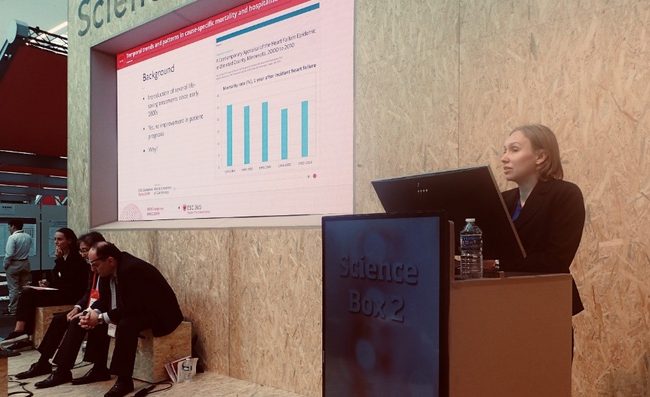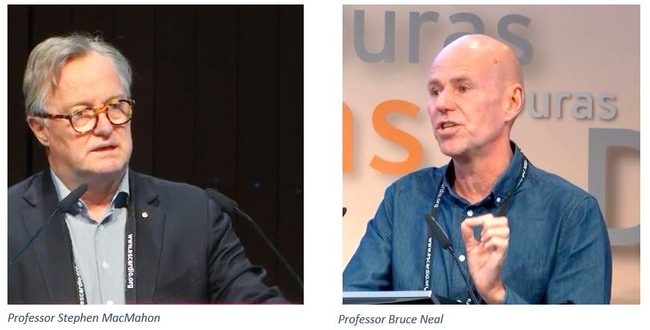
The George Institute’s researchers showcase heart research at annual congress
Researchers from The George Institute for Global Health in Oxford and Sydney presented noteworthy new findings at this year’s European Society of Cardiology Congress in Paris.
Joining forces with the World Congress of Cardiology programme, the conference attracted health care professionals dedicated to fighting heart disease from across 150 countries, for five days of knowledge exchange, collaboration and innovative thinking around how to better care for cardiovascular patients globally.
Dr Sanne Peters kicked off the week by chairing an NCD Alliance panel on ‘Putting people living with non-communicable diseases at the centre of universal health coverage’, which highlighted the burden of heart disease as the leading cause of death worldwide. Peters subsequently presented her research on sex differences in the risk, treatment and management of, coronary heart disease.

Professor Kazem Rahimi shared findings from his research group at The George Institute in Oxford, whose work spans big data, clinical trials, meta-analyses and digital technologies. Rahimi’s finding that elevated blood pressure in middle age is a marker of substantially increased risk of experiencing heart attack and stroke in future life was featured in The Telegraph and Daily Mail.

The George Institute’s clinical epidemiologist Dr Dexter Canoy presented research exploring the effect of blood pressure-lowering drugs in heart failure treatment, and Milad Lazarzadeh-Larzjan shared compelling evidence for the link between long-term exposure to high blood pressure and an increased risk of heart valve disease as part of a Young Investigator Award Session.
Dr Nathalie Conrad’s overview of trends in rates of death and hospitalisation after heart failure diagnosis coincided with publication of her research in JAMA Cardiology. The study highlighted the need for a broader approach to care management; one that considers not only patients’ cardiovascular health, but also the range of associated co-morbidities they are likely to experience.

Professor Terry Dwyer, former Executive Director of The George Institute, UK, gave a presentation on childhood risk factors and cardiovascular disease outcomes in adulthood. His talk drew on preliminary findings from long-term cohort research conducted by the I4C Consortium, which Dwyer established in 2005, and was picked up by the Daily Mail and The Times.

For the first time, the findings provide evidence that obesity in childhood is linked to heart problems in later life, regardless of how healthy those individuals are as adults. High blood pressure, cholesterol and smoking before the age of 19 also seem to raise the risk of future poor heart health. ‘What goes on in childhood matters: it is important and meaningful for later health,’ Dwyer said.
Professor Stephen MacMahon, Principal Director of The George Institute, gave a seminar asking ‘how low to go?’ in terms of blood-pressure targets in high-risk patients. MacMahon also commented on the potential impact of the analysis on clinical practice; in particular the UK’s National Institute for Health and Care Excellence guidance on diagnosis and management of hypertension in adults.

Colleagues from The George Institute, Sydney, also contributed to the Congress programme. Professor Anthony Rodgers, Acting Director of the Cardiovascular Division, discussed gaps between evidence and guideline recommendations for at what blood pressure level hypertension is diagnosed and at what level they are targeted for an intervention. Meanwhile, Professor Bruce Neal, Executive Director of the Institute in Australia, discussed controversies in hypertension management, arguing that multiple lifestyle interventions are effective at lowering blood pressure in a broad range of patient groups, but that scalable and sustainable approaches to implementation are lacking.
You can catch up on Congress highlights from The George Institute on our Twitter channel and sign-up to our newsletter for email deliveries of our latest research, activities and opportunities.





